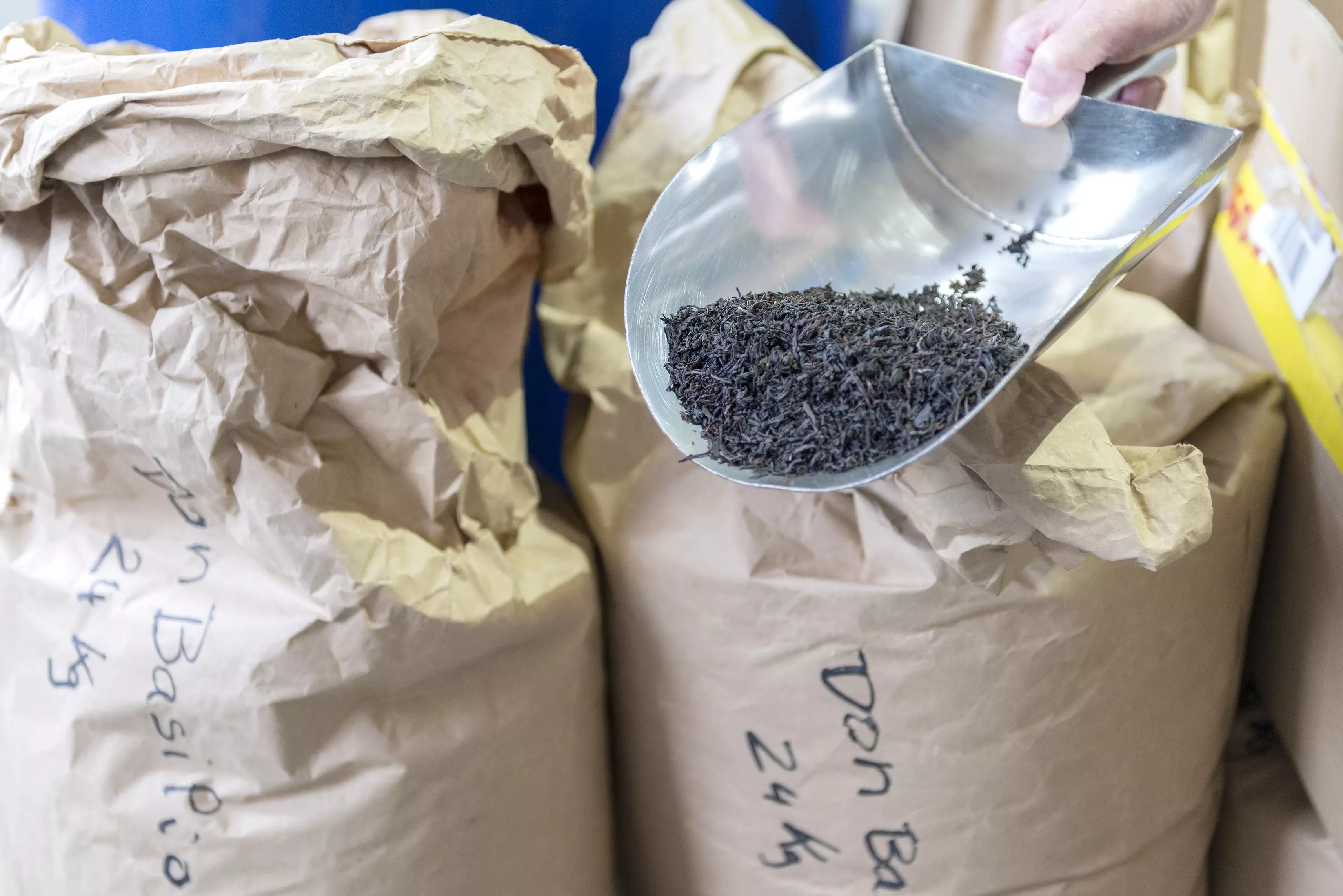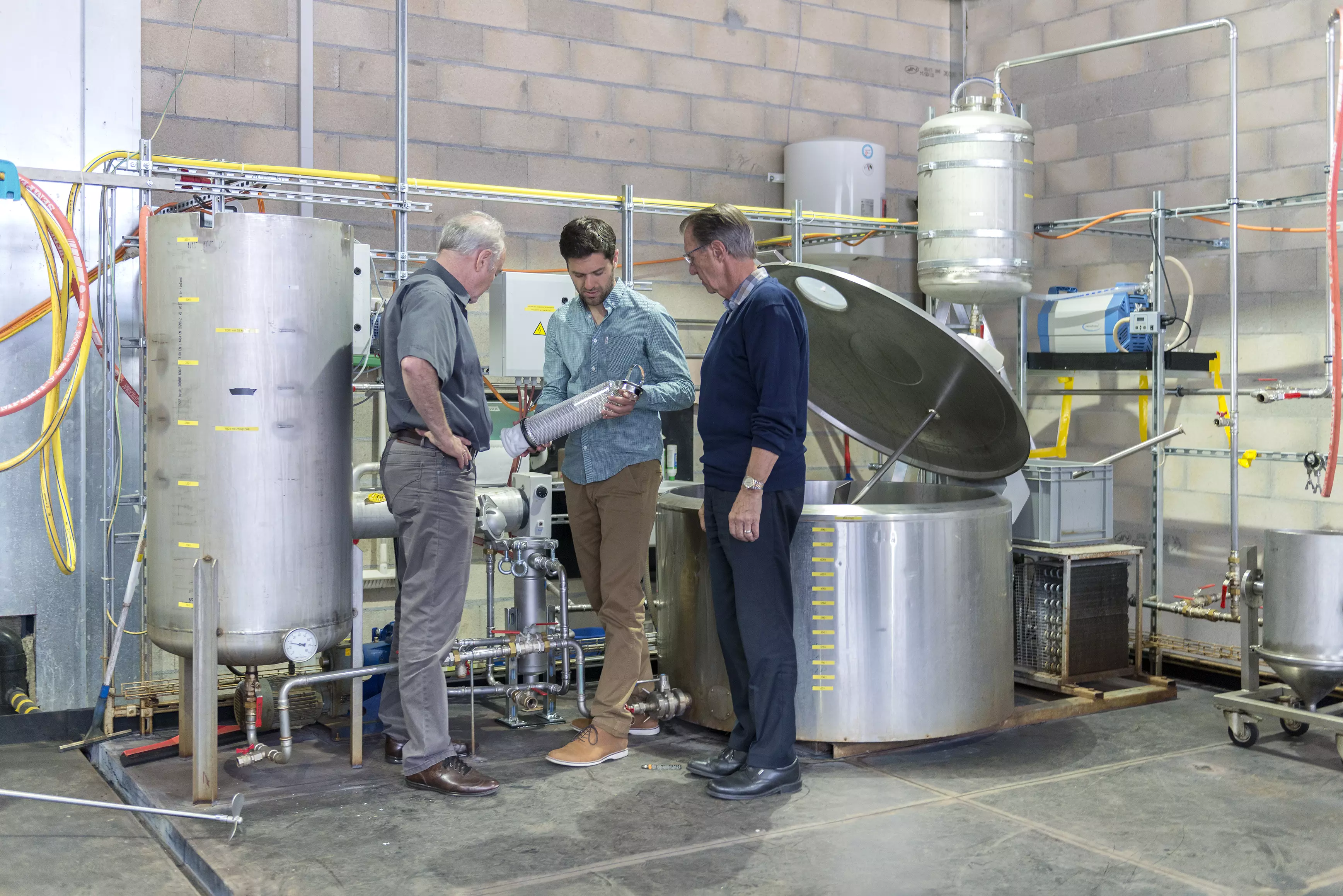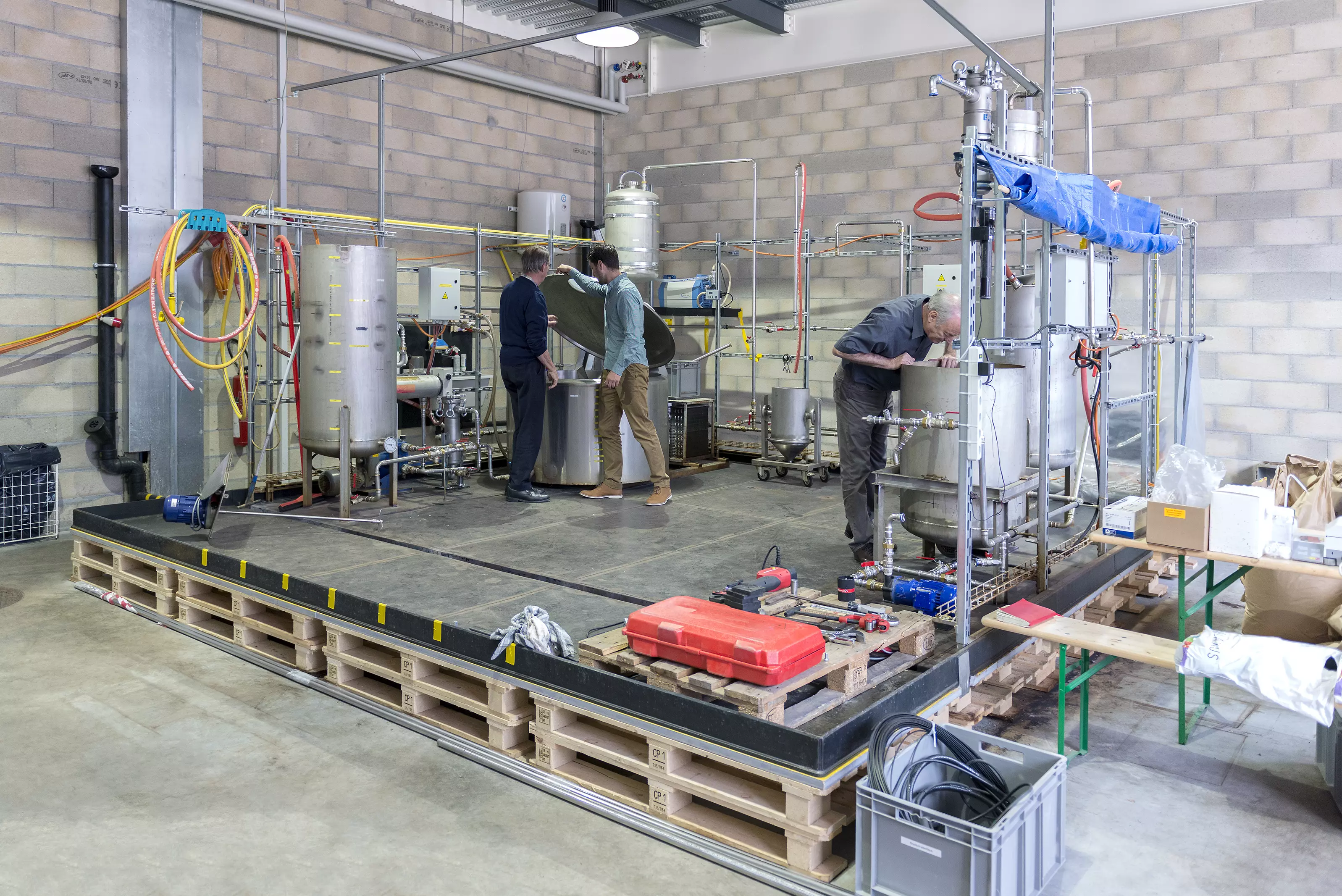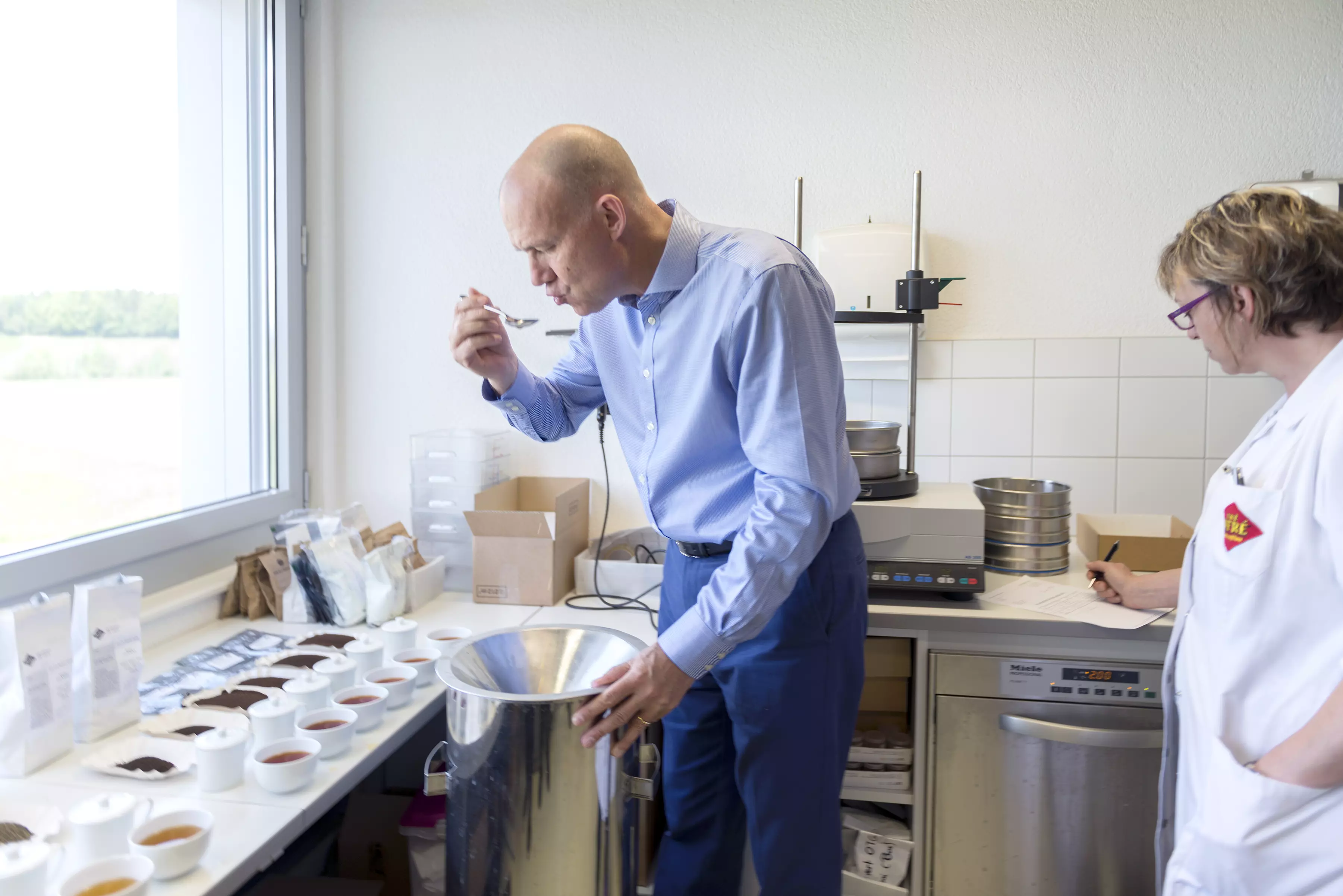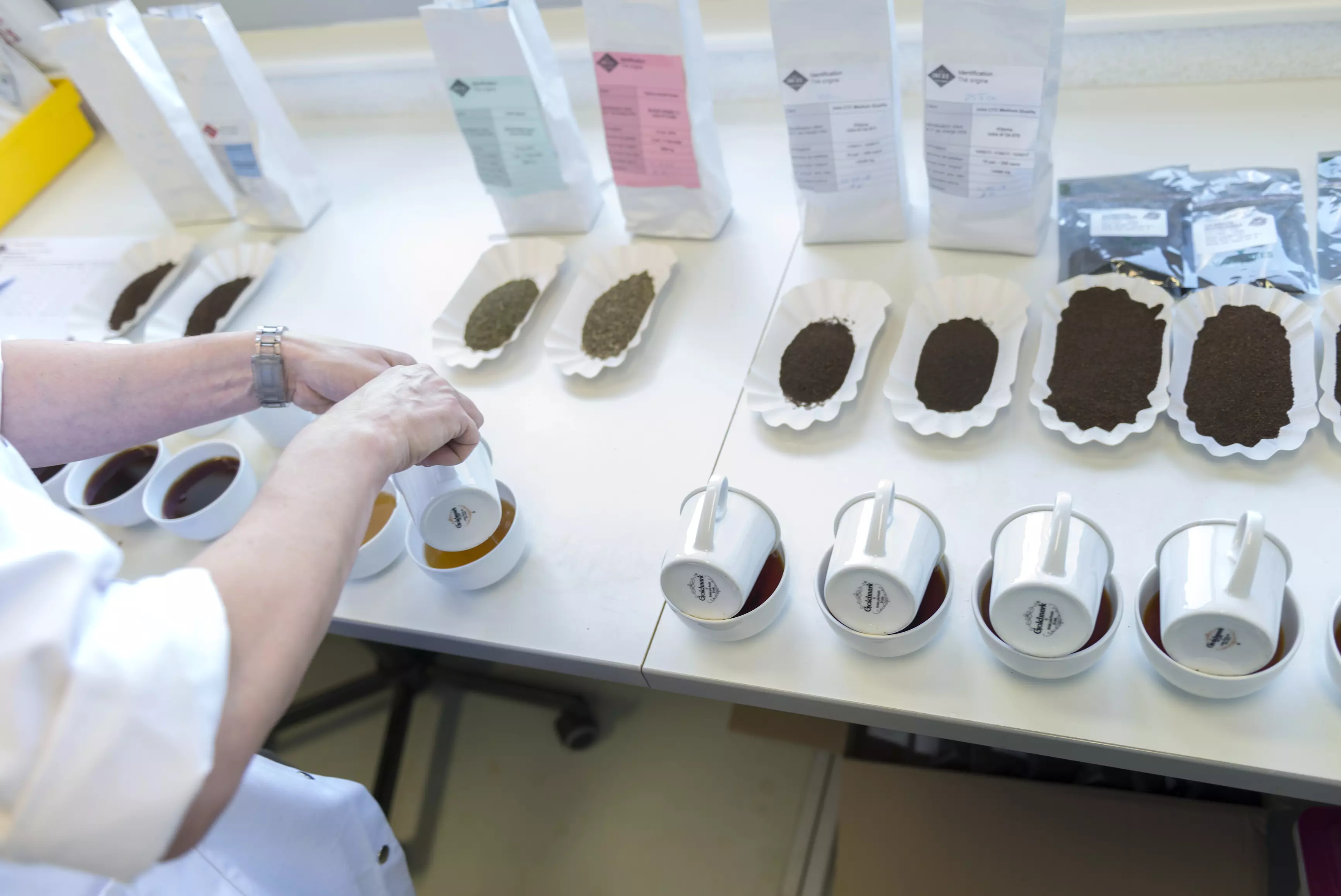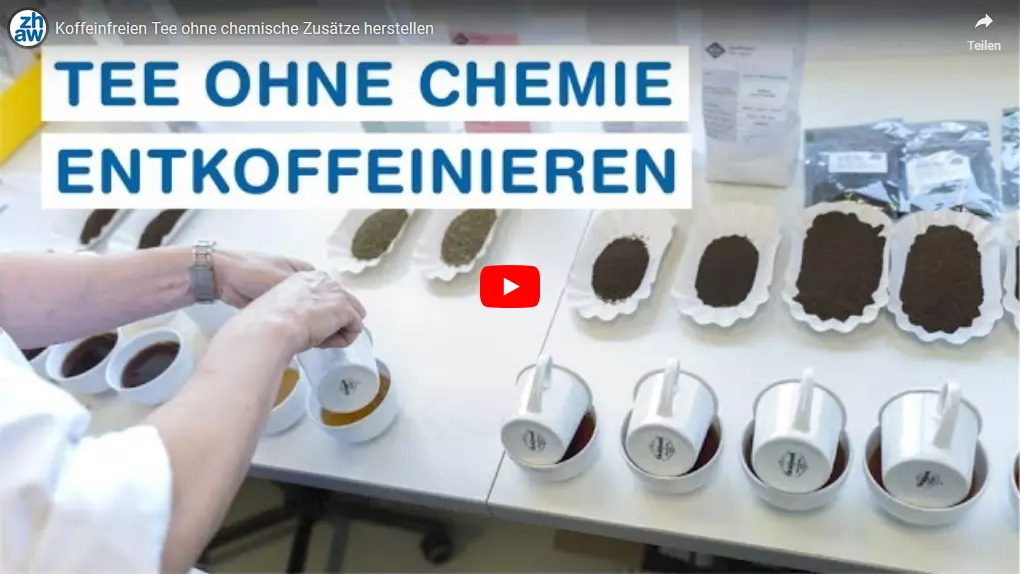Decaffeinating tea without using chemical additives
For the first time, ZHAW researchers have succeeded in decaffeinating high-quality tea naturally without using any added chemicals. In collaboration with tea producer Infré SA, they have developed a prototype system that works entirely without solvents.
Thanks to a process developed at the ZHAW, decaffeinated tea can now be produced naturally while maintaining a high quality. With this method, ZHAW researchers and the tea producer Infré SA have achieved a world first, since until now caffeine has been extracted from tea using chemical additives such as solvents. The research was supported by the Commission for Technology and Innovation (CTI) within the framework of the Swiss Food Research network.
A purely water-based method
While it has previously been possible to decaffeinate tea naturally, the natural methods available – using supercritical carbon dioxide or the natural solvent ethyl acetate – did not reach the desired levels of quality or cost effectiveness. The goal was therefore to develop a completely natural decaffeination method which would result in an end product with high sensory quality. “The challenge was to extract the caffeine so carefully that the tea still tastes like tea afterwards”, explains project leader Norbert Fischer from the ZHAW Institute of Food and Beverage Innovation. The ZHAW researchers achieved this goal with a multi-step, purely water-based method and a natural adsorbent that separates the caffeine from the tea. First, the process was simulated in the lab in order to establish the optimal conditions. Then a prototype decaffeination system was developed and installed in a rented warehouse right beside the Infré SA factory. Plans are already underway for the construction of a pilot system as a preliminary step to industrial production, and a patent has been applied for.
Reducing stress instead of fighting tiredness
Apart from resulting in a high-quality end product, for economic reasons, the production methods must involve as few workers as possible and allow the caffeine to be reused. “We will only be competitive if we succeed in re-using the caffeine for products like energy drinks”, says Infre chairman Martin Hodler. Black and green teas contain around 2 to 4 per cent caffeine, while coffee has only about 1 per cent, making it easier to decaffeinate.
It is also important that the health-promoting substances contained in tea, such as the amino acid L-theanine or polyphenols, should be preserved during the decaffeination process. “In decaffeinated tea, L-theanine, for instance, has a much stronger calming effect because the stimulating effect of caffeine is eliminated”, says Norbert Fischer. This is why consumption of decaffeinated tea is increasing. “Many people don’t want to say no to a cup of tea in the evening, but they still want to sleep well”, Hodler adds. Others want to enjoy the positive effects of tea in general without the negative effects of caffeine, such as nervousness or sleeplessness.
Pioneers in tea decaffeination
Tea is the world’s second-most sold beverage after bottled water. The overall market share of decaffeinated tea is just under 1 per cent, while in Britain it is almost 6 per cent. Infré SA is the world leader in the production of high-quality decaffeinated tea, and it was the first company ever to decaffeinate tea. Martin Hodler is confident that the natural production of decaffeinated tea will be a commercial success in the future. “To date, none of our competitors has been able to produce high-quality, naturally decaffeinated tea. Initial samples from the prototype system have shown that we are on the right path.”
Contacts
Carlo Weber, Institute of Food and Beverage Innovation, School of Life Sciences and Facility Management, ZHAW/Wädenswil, phone: 058 934 75 75, e-mail: carlo.weber@zhaw.chcarlo.weber@zhaw.ch
Cornelia Sidler, Media Relations, School of Life Sciences and Facility Management, ZHAW/Wädenswil, Tel. 058 934 53 66, e-mail: cornelia.sidler@zhaw.ch
